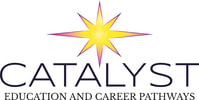|
8/30/2022 0 Comments Testing, Testing, 1...2...3I decided to resign from teaching last winter, after I realized that working two full-time jobs might not be in my best interest. In the past, I found the ideal set up was teaching part-time, every other day, so I could more easily manage my business. Granted, at the time, I didn't always have the supports I had in place for Catalyst, which I had presumed would make this last year of teaching easier; however, I also wasn't aware when I signed up to teach full-time last spring, that I would have class sizes of over 40 students, or that our schedule was changing to 38 to 42 minute classes.
The intensity of last year was beyond anything I think many of us could have foreseen, since none of us had ever experienced anything like a pandemic before. The mental health issues we, as teachers, were working through daily with our students were daunting and draining. When you have that many students in a class, and for such a short time frame, it made it extremely difficult to not only teach our content, but to also really work on building relationships with our students, which is so incredibly important now, more than ever. One of the many things I struggled with as a teacher last year was the increased amount of the apathy students demonstrated towards school, and learning. I often heard students comment, "I did nothing during on-line classes. I had my camera turned off and was doing other things." Or, "...playing games." Or, "...I didn't understand anything." And the worst was when students shared their belief that "grades don't really matter...I passed by doing nothing." That may be at the middle school level, but how can you convince a student of that age that their habits now, will impact how they do in high school, when grades absolutely matter? In a recent Edutopia article on assessments, Jodie Deinhammer shares her experience giving up summative assessments in her classroom, due largely to the situation the pandemic has left many teachers in, and it had me thinking about the purpose of assessments and how it applies to how we are evaluating student learning. In the past, as a Spanish teacher, I assessed students in different areas of proficiency, not just to see where they were at with our curriculum, and in their skills, but also as a way to hold them accountable, in some way, for their learning. Once I transitioned into teaching Technology full-time, that all changed, because the emphasis in our classes was on project based learning; a completely different approach to providing access to information and students applying their learned knowledge. I too found myself getting completely away from assessments and I often considered how much that mattered, especially when I began to consider "test anxiety" and how that completely went out the door, when there were no more "tests." Assessments, as Deinhammer points out, are frequently focused on memorization of facts and in this day and age, is that truly a necessary skill set to have, when we have access to infinite knowledge and information? I often come back to considering what the purpose of public education is: primarily to teach citizenship, to prepare students for the workforce, and give them the skills they need to thrive in our society, among other things. And what skill sets are employers looking for? I doubt memorization of facts is at the top of their list. At the same time, assessments are necessary in many ways; they can be used as a way to determine a student's level of understanding and how it compares to other students. I would also argue that assessments do teach students accountability, responsibility, and most importantly: consequence. A Math teacher friend of mine shared, "Assessments are really just a test of behavior. If a student isn't putting in the time and effort in class completing their work, it's going to show in their test scores." So do tests matter? I think if they are done correctly, they are a useful tool and, the fact remains, they are simply required for funding. At the same time, we have to recognize that so many students are experiencing "learning loss,” due to the pandemic, so the question remains: how can we assess students on the same content, when there are gaps in many different skill sets that can contribute to their lack of understanding of the content they are currently working on? At Catalyst, our hope for this year, is to help our students overcome the inordinate barriers they are facing that have become compounded by the pandemic by focusing on: building relationships; providing one on one, targeted academic supports that are tailored to their specific needs; by engaging with the learning communities and staff we work with; and by connecting with parents. We do truly need to be in this, together, and while there seems to be so much cause for concern within education now, I also believe that we will be able to make strides and help our students find success.
0 Comments
|
AuthorDanielle, founder of Catalyst Education and Career Pathways, has worked in education for over fifteen years. She began her teaching career in Beaverton, Oregon and later taught at the middle school, high school, and college level in New York City. She later returned to Oregon and spent several years working in Workforce Development. Her passion for teaching brought her back to the classroom, where she continued teaching Spanish and Technology, until last year. Beyond holding a Masters Degree in Teaching, Danielle also obtained her Master's Certificate in Administration and is now focusing on managing Catalyst, while investigating ways to improve our education system. ArchivesCategories |
ServicesAcademic Tutoring
Career Planning College Planning |
|

 RSS Feed
RSS Feed